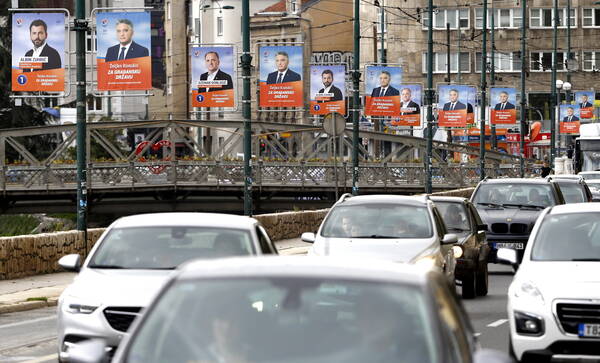Bosnia goes to the polls as ethnic divisions grow
Amid secession threats and fears of fresh political turmoil
30 September, 09:05Bosnia is divided between a Serb entity -- the Republika Srpska (RS) -- and a Muslim-Croat federation linked by a weak central government. With Bosnia's three main groups rarely mixing in the wake of the war, ethnic political parties have long exploited the country's fault lines in a bid to maintain power, driving hundreds of thousands abroad in search of better opportunities.
With little to no polling data to rely on, analysts say incumbents and nationalist parties are likely to dominate many of the contests, including long-time Bosnian Serb leader Milorad Dodik, who is running for the presidency of the RS. For months, Dodik has been stoking tensions amid frequent calls for Bosnia's Serbs to separate even further from the country's central institutions. Bakir Izetbegovic, the son of the first president of independent Bosnia -- is running for a third term as the country's Bosniak Muslim president but is facing stiff competition from 46-year-old history professor Denis Becirovic.
Backed by 11 opposition parties, Becirovic is vowing to fight for a "pro-European and united" Bosnia. To add to the growing divide, many of the country's Catholic Croats have been pleading for greater autonomy or electoral reforms during the run-up to the polls, with the leading nationalist party HDZ threatening to boycott the contest for months. (ANSA-AFP).














